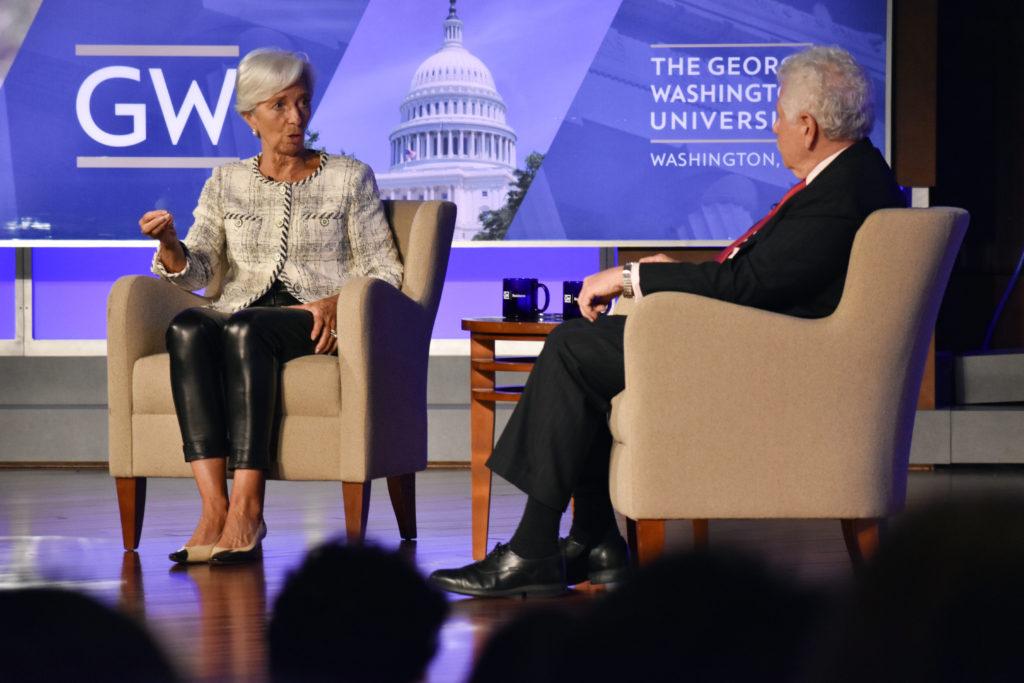The managing director of the International Monetary Fund discussed the “delicate” state of the global economy at the Jack Morton Auditorium Thursday.
Christine Lagarde, who has headed the IMF since 2011, talked about current risks to world economic stability, like tensions over trade and globalization, with Danny Leipziger, a professor of international business. The discussion was the last installment in the first season of the School of Business’ “George Talks Business” speaker series, which launched earlier this semester.
In case you missed it, here are some highlights:
1. Slowing global economic growth
Lagarde said the world economy’s “momentum has clearly changed” as the growth rates of economies around the world have decelerated this year compared to last year.
“Now, where we are, 70 percent of the global economy is still growing but on a slowed-down pace,” Lagarde said.
IMF economists forecast that the world economy will grow 3.3 percent this year, on par with global economic growth in 2016, the weakest year for global economic growth since 2009.
Lagarde said IMF economists expect greater economic growth during the latter half of this year because of potential improvements in global trade relations. She added that the organization expects world economic growth to improve to 3.6 percent in 2020.
2. U.S.-China trade relations
Lagarde said she has heard “lots of good, positive rumors” about a potential resolution of the ongoing trade war between the United States and China and urged the two countries to repeal the tariffs they levied on each other.
She said the two countries should reach a “clear understanding” on bilateral trade because international trade is a “big locomotive for growth.”
Lagarde also reiterated how China is a “big driver of economic growth” because of the size of its economy and historical growth rates. She said the recent slowdown in Chinese economic growth “clearly” indicates that China’s government intends to shift from “high-speed growth” to “high-quality growth.”
3. Globalization’s successes and failures
Lagarde said increased integration between people and companies worldwide – globalization – has had a “phenomenally good impact” by reducing worldwide poverty, but it also has had a “detrimental” impact on those who have lost their jobs or seen their wages stagnate. Lagarde said governments should use policies to curb the negative effects of global capitalism and abate anti-globalization sentiment in the United States and Europe.
“We have been saying for now, probably about eight years, eight or nine years, that excessive inequalities are not conducive to sustainable growth,” Lagarde said. “And clearly, this is what we are seeing unfolding.”
Lagarde said reforms could include a combination of increased taxation, more public investment and redistributive policies that spread the wealth generated by international trade to groups harmed by the excesses of globalization.
She said the IMF has increased the scope of its activities to address female empowerment and climate change to better meet the needs of people and countries around the world.
“I believe that the IMF has to constantly adjust in order to continuously be relevant and of service to the international community,” Lagarde said.





